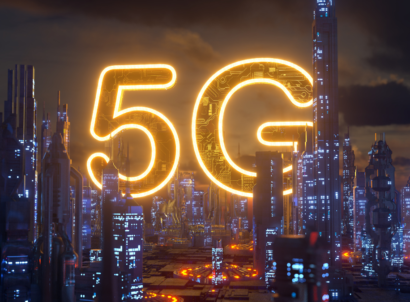The advent of 5G technology is poised to revolutionize the media and telecommunications industry, offering unprecedented speeds, low latency, and massive connectivity. As 5G networks continue to expand, we can expect to see significant changes in the way we consume and produce content.
Enhanced Content Delivery
One of the most immediate impacts of 5G will be on content delivery. With its significantly higher speeds and lower latency compared to previous generations of mobile networks, 5G will enable faster and more reliable streaming of high-quality video and audio content. This will benefit a wide range of media services, including:
- Streaming Services: 5G will enable streaming platforms to offer higher-resolution video content with minimal buffering, improving the overall user experience.
- Live Streaming: 5G will facilitate real-time, high-quality live streaming of events, sports, and news, making it more accessible to a wider audience.
- Virtual and Augmented Reality: The low latency of 5G will enhance the immersive experience of virtual and augmented reality applications, making them more accessible for gaming, entertainment, and education.
New Media Opportunities
5G will also create new opportunities for media and telecommunications companies. For example, it could enable the development of innovative augmented reality experiences, interactive storytelling, and personalized content recommendations. Additionally, 5G could facilitate the growth of new media formats, such as immersive journalism and interactive documentaries.
Transformation of Telecom Services
The impact of 5G on the telecommunications industry will be profound. As 5G networks become more widespread, telecom operators will need to invest in new infrastructure and develop new services to meet the evolving needs of their customers. This could include:
- Network Upgrades: Telecom operators will need to upgrade their networks to support 5G technology, which requires significant investments in infrastructure and equipment.
- New Service Offerings: 5G will enable telecom operators to offer a wide range of new services, such as ultra-reliable low-latency communication (URLLC) for critical applications and massive machine-type communications (mMTC) for IoT devices.
- Business Opportunities: 5G will create new business opportunities for telecom operators, such as providing connectivity for smart cities, industrial IoT, and autonomous vehicles.
Challenges and Considerations
While the potential benefits of 5G are significant, there are also challenges to overcome. These include:
- Infrastructure Costs: The deployment of 5G networks requires significant investments in infrastructure, which can be expensive.
- Spectrum Allocation: Ensuring sufficient spectrum allocation for 5G services is essential for widespread adoption.
- Interoperability: Ensuring interoperability between different 5G networks is crucial for a seamless user experience.
In conclusion, 5G technology is poised to revolutionize the media and telecommunications industry. By enabling faster speeds, lower latency, and massive connectivity, 5G will create new opportunities for content delivery, media services, and telecom applications. As 5G networks continue to expand, we can expect to see significant changes in the way we consume and produce media.



